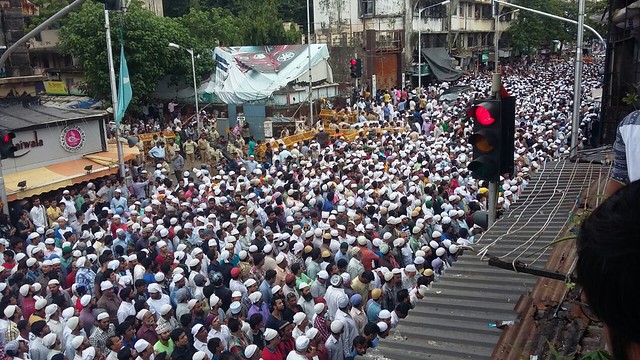By AJ Quraishi for TwoCircles.net
In his only interview to India Today in 1994, a confident Yakub Memon insists that though his story might sound unbelievable, it is true and that people will eventually believe him. His faith in his ‘motherland’ and its people was remarkable. Alas, the man who exposed the conspiracy of the 1993 Mumbai serial blasts that killed 257 people and the role played by Pakistan’s intelligence agencies would have done himself a huge favor had he stayed back in Pakistan.
Indeed, Yakub was exploited and betrayed by the Indian investigative agencies that promised him safety and justice, used the cache of materials he compiled risking his life to crack the case and later cited the same as evidence to sentence him to death.
How else can you explain his interview in which Yakub, an accused charged with a monstrous crime, lays bare everything, while incriminating himself on TV, unless he was given some assurance of protection?
It was the first of the many instances that were to come where Yakub’s ‘motherland’ let him down.
In the aftermath of Yakub’s hanging, Justice B M Srikrishna, who headed inquiry into the riots that followed the Babri Masjid demolition and preceded the Mumbai blasts and eventually became its main cause, alleged a ‘state bias’ on the basis of communal and religious factors in the treatment of the riots and blasts cases. Indeed, he voiced a concern that reflects that of many a sane Indian minds.
If capital punishment given to Yakub can bring closure to the innocent victims of the bomb blasts, then the same should be meted out to the perpetrators of the original sin – the demolition of Babri Masjid and the ensuing riots leaving 900 dead. Only three persons have been convicted for the riots.
If sending Yakub to the gallows is of any comfort to the blast victims, then the notorious Maya Kodnani and Babu Bajrangi should also be hanged to death for their role in the massacre of 97 Muslims in Naroda Patiya in the 2002 Gujarat riots. Let alone a death sentence, both of them have been granted bail several times.
An equally harsh punishment should also have been given to Bal Thackeray, recipient of a state funeral, and members of his party Shiv Sena whose roles in instigating riots were highlighted in the Srikrishna report.
Yakub’s death should not be mistaken as a closure to victims of the blast as the real culprits roam freely. If anything, in his death, Yakub serves as a reminder to Indians, especially Muslims, that there is not an iota of hope for victims of terror. That no matter with how much vigor Indian Muslims wave the tricolor in an India-Pakistan cricket match, their patriotism will always be questioned.
In Anurag Kashyap’s ‘Black Friday,’ a film based on a heavily researched book by the same name about the 1993 blasts, Yakub (played by Imtiaz Ali) makes a blink and miss appearance in a scene of his arrest in India and the subsequent TV interview, as the rest of the film shows the meticulous planning and scheming that went into the bombings executed by Tiger Memon, Yakub’s brother, on the instruction of underworld don Dawood Ibrahim. If the film is any indication of Yakub’s role or the lack of it in the blasts, then it is safe to say that he was anything but a ’driving force’ and ‘mastermind’ behind the blasts, the two words used by the court to convict him.
After 22 years, the Mumbai blasts claimed its 258th victim – Yakub Abdul Razak Memon. A painful reminder that justice system in India is slow and selective.


